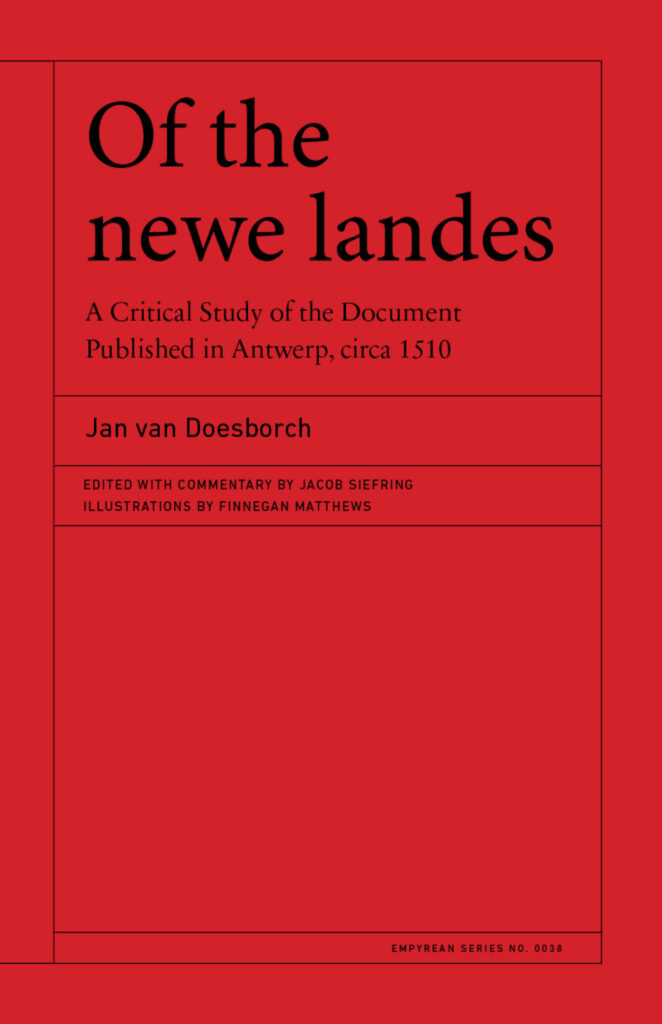Of the explorers
Over the last 16 months I spent an incalculable amount of time putting together an edition of a strange and fascinating travel pamphlet printed in Amsterdam 1510 or 1511. It was exciting to explore the world of the author, printer, bookseller, and engraver Jan van Doesborch. He is the book’s author, translating and adapting Amerigo Vespucci, Balthasar Springer, Johannes Witte de Hese, and Prester John. This was definitely one of the more challenging projects I’ve done so far. There are a few things about it that I really struggled with, and a few things I wasn’t sure whether to withhold or incorporate. I hope that my interpretation and contextualization of the work are adequate to the gravity of the violence perpetrated against the people of East Africa, which the book passingly describes.
In the category of “withheld” are a few passages from things I read that really seemed to resonate with what I felt as I was reading of the many colonial encounters as described (and distorted) in Of the newe landes.
§
“Men travel in search of strange hemispheres, little suspecting that they are ransacking their origins. Doom was the loot of the conqueror; he gathered ruin, misfortune, and death. We are so astonished by men gorged with the calamities of the world that knowledge of their rueful pilgrimage brings us pleasure rather than sorrow.” —Edward Dahlberg, The Carnal Myth, Ch. 9.
“They thought they were only slaughtering Indians, or Hindus, or South Sea Islanders, or Africans. They have in fact overthrown, one after another, the ramparts behind which European civilization could have developed freely.” —Aimé Césaire, Discourse on Colonialism (1950, tr. Pinkham 2001, pp. 75)
“For my part, if I have recalled a few details of these hideous butcheries, it is by no means because I take a morbid delight in them, but because I think that these heads of men, these collections of ears, these burned houses, these Gothic invasions, this steaming blood, these cities that evaporate at the edge of the sword, are not to be so easily disposed of. They prove that colonization, I repeat, dehumanizes even the most civilized man; that colonial activity, colonial enterprise, colonial conquest, which is based on contempt for the native and justified by that contempt, inevitably tends to change him who undertakes it; that the colonizer, who in order to ease his conscience gets into the habit of seeing the other man as an animal, accustoms himself to treating him like an animal, and tends objectively to transform himself into an animal. It is this result, this boomerang effect of colonization that I wanted to point out.” —Aimé Césaire, Discourse on Colonialism (1950, tr. Pinkham 2001, pp. 41)
“There is no document of civilization which is not at the same time a document of barbarism.” —Walter Benjamin, “On the Concept of History” (Illuminations, trans. Zohn, Schocken, 2007, pp. 256). (This one actually made it into the foreword.)
Tags: aimé césaire, Edward Dahlberg, Empyrean Series, Jan van Doesboch, Of the newe landes
